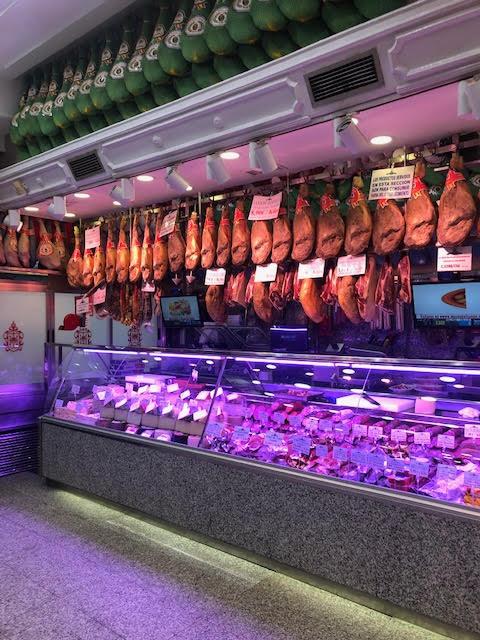Spain’s food culture can be described as one of tradition and loyalty to a style of eating that accommodates Iberians across the peninsula. One foodstuff commonly found in a Spanish diet, and sampled by students studying abroad at the NYU Madrid campus, is the delicacy known as jamón, better known as ham in the United States.
Whether it’s the popular jamón serrano or highly coveted jamón iberico, the dishes can be found almost anywhere in Madrid. Kevin Ford, a CAS junior studying politics at NYU Madrid, likens jamón to luxury fodder he’s had back in New York City.
“You can definitely draw similarities to the way people treat wine or cigars,” Ford said. “Obviously there are entry-level options meant for everyone to try, but it also can become pricey depending on age, origin and quality of the jamón.”
It is said that there is no better judge of quality of meat than a Madridien. With that in mind, Barbara, who has worked at the jamóneria Viandas de Salamanca for over five years, introduced the different tiers of quality that jamón can possess.
“Jamón iberico is preferred to jamón serrano because of the kinds of pigs they both come from,” she said. “Iberico is typically a richer, nuttier flavor, but depending on the day I will eat whichever I can get my hands on. I eat jamón everyday.”
Not only it is her profession but it is also part of her lifestyle. She’s known her whole life that the Spanish approach to meat is unparalleled globally.
“It’s deeply ingrained in our culture,” she said. “None of it is processed or riddled with [preservatives]. So to eat it in moderation, daily even, is healthy and typical for most Spaniards.”
Jamón is commonly eaten on a sandwich along with fresh cheese and crunchy bread. It can also be enjoyed alone, thinly sliced with a drizzle of olive oil.
CAS junior Ish Harris remembers his first time having jamón.
“It changed my life,” Harris said. “One euro for a sandwich. One euro for a brew that goes with your sandwich. You can’t beat that.”
For approximately $2.50, you can eat and drink like a local any day of the week, any time of day, making jamón a pleasantly accessible commodity in Madrid.
CAS sophomore Kyle Salcido reiterated that you don’t have to sacrifice quality when only spending a few euros on your meats in Madrid.
“The jamón is always really fresh and delicious,” Salcido said. “The ham at home just doesn’t compare to what you’ll find here. You can walk down any street, walk into any market and get better than what you would normally get at home.”
Email Ben Land at [email protected].

























































































































































